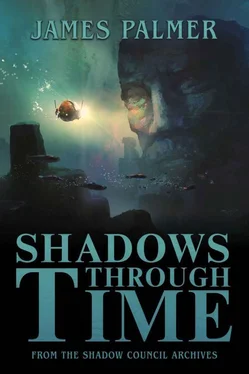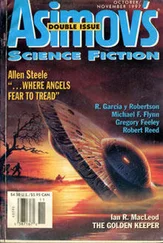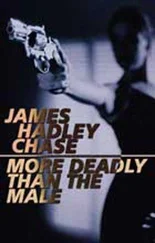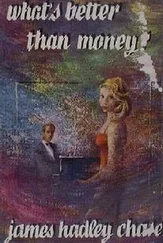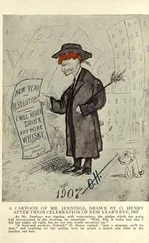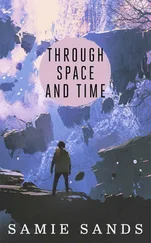Mycroft’s eyes narrowed to slits. “Have it your way, Burton. For now.”
Challenger laughed, clapping Burton hard on the back as he passed, arm in arm with Isabel.
“You’re a force to be reckoned with, Burton,” said the burly zoologist. “I shall drink to you tonight.”
Burton didn’t care about being the subject of any toasts. He only wanted to hold Isabel’s hand and walk with her in the early light of dawn. He didn’t know how he was going to explain her disappearance and sudden reappearance to Isabel’s parents. The truth of that, like what almost happened to the city, was best kept secret. But that was a problem for tomorrow. The past no longer existed. The future wasn’t here yet. All that mattered was the glorious golden Now. And Richard Francis Burton intended to hold onto that as long as he could.
Do what thy manhood bids thee do, from none but self expect applause;
He noblest lives and noblest dies who makes and keeps his self-made laws.
All other Life is living Death, a world where none but Phantoms dwell,
A breath, a wind, a sound, a voice, a tinkling of the camel-bell.
—Sir Richard Francis Burton,
The Kasidah of Haji Abdu El-Yezdi
“At the door of life, by the gate of breath, There are worse things waiting for men than death.”
—Algernon Charles Swinburne
“No death, no doom, no anguish can arouse the surpassing despair which flows from a loss of identity. Merging with nothingness is peaceful oblivion; but to be aware of existence and yet to know that one is no longer a definite being distinguished from other beings—that one no longer has a self—that is the nameless summit of agony and dread.”
—H.P. Lovecraft,
Through the Gates of the Silver Key
Captain Sir Richard Francis Burton awoke from a comforting dream of desert sands and exotic spices, goaded by his landlady and housekeeper, Miss Angell. In his dream, he rode horseback, a solid Arabian, the folds of his white, loose-fitting garments flowing in the warm breeze that shifted the ever-changing dunes which surrounded him. By his side on a similar horse was his wife, Isabel, wearing similar garb, their faces tanned by the Persian sun. Burton had never felt happier—until Miss Angell shook him awake.
“Captain Burton,” said the old woman.
“Lemme lone,” mumbled the explorer. “Araby.”
“I’m sorry to disturb your rest, Captain, but someone is here to see you.”
Burton’s sleeping mind shifted from the sand-shrouded landscape and back into the present day. He felt the cool sheets covering him, his body remembering his comfortable bed in his rooms at Gloucester Place. His first coherent waking thought was that it was Abberline. The policeman had some nerve coming around in the dead of night.
“Tell them to go away,” he said, and would have fallen back asleep almost immediately but for his housekeeper’s persistent shaking of the bed.
Burton’s eyes popped open, his old military training once again coming to the fore. As a soldier he had to get rest when he could, snapping to attention at a moment’s notice. He sat up.
Miss Angell knelt by him. A candle sputtered on the bedside table. “What is it?”
“Your friends Mr. Milnes and Mr. Bradlaugh. They have Mr. Swinburne with them…and he’s in a bad way. They asked me to wake you. I’m sorry.”
Burton knuckled sleep from his eyes. “It’s all right. What time is it?”
“Half past three.”
Burton stared at her bleary-eyed, a lump forming in his stomach. If his friends were calling on him at this hour, their straits were dire indeed. “All right. Tell them I’m coming.”
Miss Angell left the candle and felt her way out of the room while Burton got up and threw on a robe and donned his slippers. He was down the stairs in a flash and found Richard Monckton Milnes, Charles Bradlaugh, and an unconscious Algernon Charles Swinburne, lying prone on the sofa.
“What’s the matter with him?” said Burton. “He must really be in his cups for you to bring him here.”
“I wish this were the drink,” said Bradlaugh, a worried look on his face. “This is something else, Richard.”
Burton stared at his unconscious friend and sighed. To Miss Angell he said, “Will you put on some coffee?”
His housekeeper nodded and left the room. Burton took a seat in a chair opposite the sofa on which the poet lay. “Tell me exactly what happened.”
“He sold a collection of his poetry, so we took him out to celebrate, explained Bradlaugh. “Long about midnight he had his usual hankerings for the lash, so Charles and I accompanied him.”
“Research for a book I’m writing,” added Milnes. “Well, in the middle of his, ahem, session he collapsed. Fainted dead away. Only we couldn’t revive him. Not even smelling salts would arouse him.”
“Bismillah!” Burton swore.
“So we got him dressed and brought him here, since you were closer,” added Bradlaugh. “We didn’t know what else to do. Imagine the scandal if word got out that any of us were at a brothel.”
“It’s all right, Charles,” said Burton. “You did the right thing. How long has he been like this?”
Monckton Milnes and Bradlaugh exchanged questioning glances. “An hour or so,” said Bradlaugh.
Burton nodded. “We’ll call James Hunt. He’ll know what to do and, perhaps more importantly, he’ll keep this quiet.”
Burton got up, went to the front door, grabbed a lantern, and lit it. Taking a police whistle from a pocket of his robe, he opened the door and blew three quick, short bursts.
“For God’s sake man,” said Monckton Milnes. “You’re summoning the police?”
“Don’t be so dramatic,” answered the explorer. “I’m calling a messenger. There’s a street urchin who sleeps in the alley across the way. He does odd jobs for me from time to time.” Burton closed the door.
No sooner had he done so than there was a light knock at the portal. Burton opened it again to find a spindle-thin boy of about twelve years of age standing there expectantly and, despite the late—or rather, early—hour, wide awake. His threadbare clothes were almost one size too small, and he stood shivering in a worn topcoat and fingerless gloves.
“Ah, Master Thomas,” said Burton with a smile. “I was afraid you’d not hear my whistle.”
“I’m a light sleeper, guv,” said the boy. Burton knew little about the boy, except he answered to the name Thomas Malenfant. But he was hardworking and trustworthy, and Burton liked the bright-eyed energy of the youth.
“I have a special task for you this night,” said Burton as he handed the boy a shilling. “Go and fetch Dr. James Hunt.” He gave the boy the address. “Do it quietly. When you return with him I’ll give you another shilling.”
“Yessiree, guv!”
“Do so within the hour and I’ll give you two shillings.”
“Right-o, Cap’n Sir Richard, sir!” he said, taking the lantern from Burton, leaping down the steps, and disappearing into the fog-shrouded gloom.
Burton shut the door with a chuckle and returned to the sitting room, glancing at his friend the poet. “I’ve never seen him like this. Even when he’s three sheets to the bloody wind.”
“This isn’t the drink,” repeated Bradlaugh. “This is something else.”
The two men had already helped themselves to Burton’s supply of brandy, so Burton shrugged and joined them. There would be no more sleep for him this night, he knew. When Miss Angell brought coffee on a silver serving tray, the three Cannibals added their brandies to the steaming cups and drank deeply while the housekeeper worried and fussed over the prone Swinburne, mopping his forehead with a cool, wet cloth.
Читать дальше
